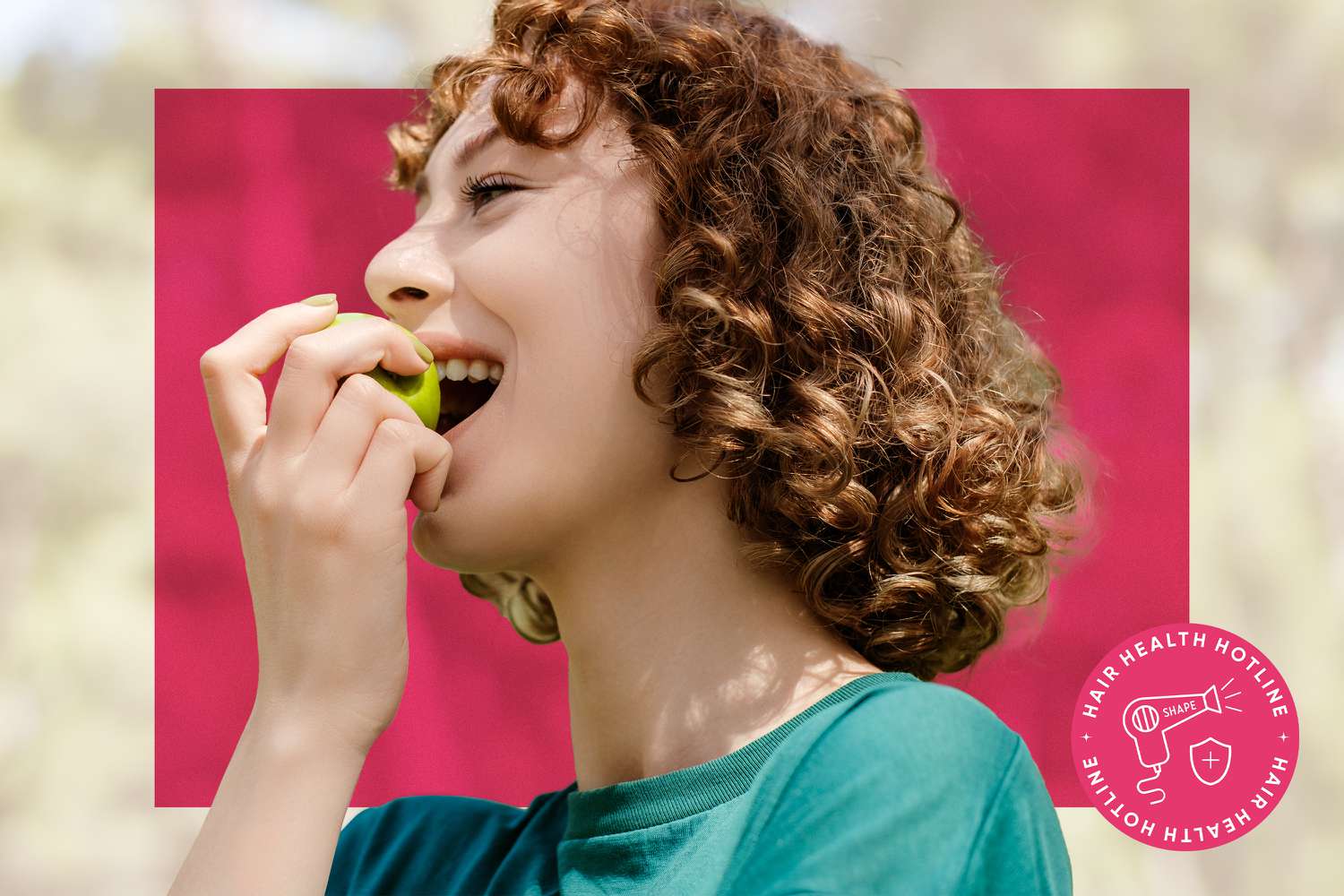The Impact of Diet on Hair Growth: Understanding Hair Health

Hair Health Hotline provides a direct platform to access experts such as dermatologists, trichologists, hairstylists, and beauty professionals. This series discusses common hair and scalp issues as well as offering scientifically backed solutions for hair care.
The health of your hair, reflecting in its shine, volume and strength can depend upon several factors including age, environment and your hair care routine. However, the effect of your diet on the quality of your hair may not have received your consideration yet.
Interestingly, your diet can significantly influence your hair health. Changes in your diet due to reasons like frequent travel, stressful situations, or dietary limitations may impact your hair negatively or positively. Hence, the correlation between diet and hair health is not merely an assumption.
In this context, certified trichologist Tiffany Young, CEO at ThinHairThick, and Alan J. Bauman, MD, founder, CEO, and medical director at Bauman Medical Hair Transplant & Hair Loss Treatment Center, elaborate on how changes in diet can affect hair health. They also disclose their top recommendations about what to include in your diet to boost your hair health.
A: The straightforward response is 'yes,' your hair health is intrinsically linked with your diet. Simply put, making healthier food choices can directly enhance your hair condition.
"The state of your hair can reflect your diet both in the short and long term," says Young. "For instance, a drastically calorie-deficient diet can result in hair loss because the body redirects essential nutrients towards vital processes. Alternatively, a diet high in refined sugars or carbohydrates can lead to insulin issues, triggering inflammation that leads to hair loss."
We are all familiar with how our diet can influence our holistic health, such as energy levels. However, you might be curious about why your food can affect your hair health so significantly.
Your hair follicles are metabolically active cellular structures situated in your scalp that generate your hair fibers, explains Dr. Bauman. These follicles are quite sensitive to the intake of nutrients and energy. "If you are genetically predisposed to hair loss or other scalp health issues, these problems could be made worse by insufficient nutrition," he adds.
While witnessing sudden changes in your hair, such as becoming dry, dull, excessively oily, or falling out can be quite alarming, the reassuring fact is that these changes can be reversed naturally by incorporating certain foods into your diet.
Dr. Bauman advises including omega-3 fatty acid-rich foods in your meals such as flaxseeds, walnuts, salmon, tuna, kale, and Brussels sprouts. "The omega-3 fatty acids present in these foods contribute to the health of both the hair shaft and cell membranes in your scalp, thus supporting follicle health and promoting hair growth," he says.
Eating zinc-rich foods also helps maintain hair health. Good sources of zinc include chickpeas, wheat germ, oysters, beef, and liver. "Zinc contributes to maintaining your scalp and hair health. It aids in tissue growth and repair, hormone regulation, and supports the functioning of oil-secreting glands on the scalp that foster hair growth," explains Dr. Bauman.
Further, Dr. Bauman recommends high-protein foods for replenishing the proteins in your hair. Foods such as Greek yogurt, egg yolks, peanuts, beans, chicken, turkey, and lentils are high in protein. Likewise, foods rich in iron aid in promoting blood circulation. Prime sources include dark green leafy vegetables, whole grains, egg yolks, grass-fed beef, clams, and oysters.
Consider including foods rich in vitamins A and C in your diet to aid the hair follicles in sebum production, which include almonds, cashews, lentils, spinach, brown rice, and halibut. Furthermore, foods that are high in selenium assist in regulating metabolism and immunity. True sources of selenium are Brazil nuts, tuna, halibut, shrimp, and sardines.
Both experts understand that finding and adding these kinds of foods to your regular diet can be time-consuming or inconvenient, particularly if these foods are not readily available in your location. Hence, they recommend dietary supplements as a helpful addition to a balanced diet.
"I am particularly fond of the bioavailability of bone broth protein and collagen protein," reveals Young. "PaleoValley and Vital Proteins are some trustworthy brands. An effective starting point would be a good multivitamin that contains iron and biotin, until specific information from lab results is available."
If you are considering adding specific supplements, like zinc, vitamin A, or vitamin D, talk to a healthcare provider about which supplements might be right for you. It is important to get advice from a medical professional before adding supplements as many can interfere with existing medications or may cause side effects given your medical history.
While modifying your diet or taking supplements is something you can easily start, if your hair health has declined rapidly, or if you would simply like some individual advice and support to improve your hair health, Young recommends you start by getting tested for common nutritional deficiencies such as iron, Vitamin D, and Vitamin B.
Depending on the specific issues you’re experiencing, it may also be a good idea to consult a general health practitioner, trichologist, dermatologist, or dietitian. Look for someone who can offer personalized guidance on the best way to take care of your hair—and your nutrition—moving forward.
Have a hair health question you want answered? Send your Q to [email protected] for a chance to have it featured in a future installment of the Hair Health Hotline.




